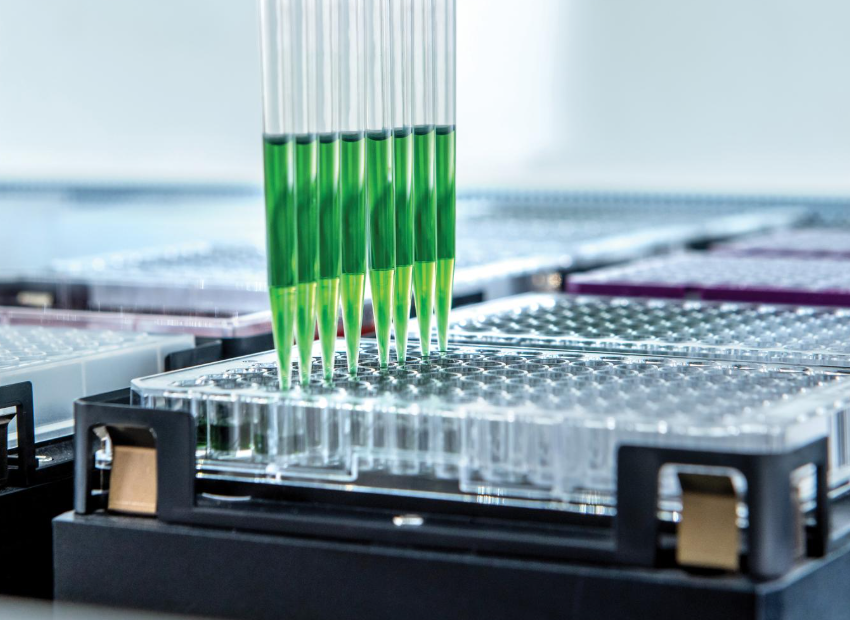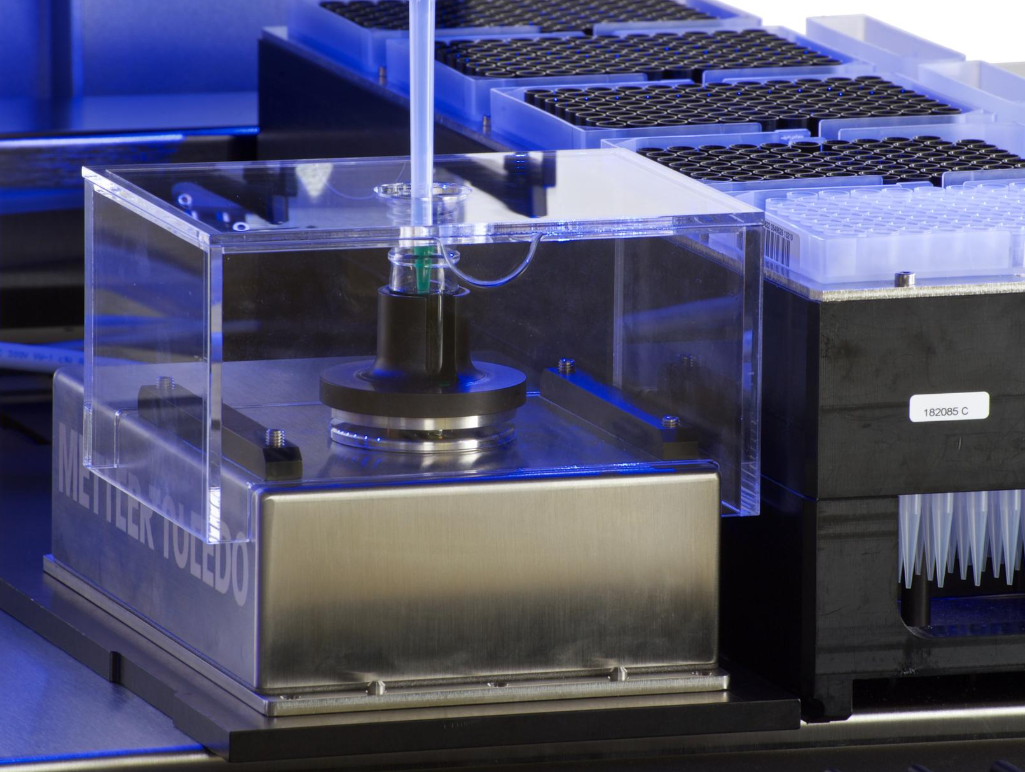- Liquid Handling Trainings
Discover HAMILTON's Pipetting Excellence Program
Liquid Handling Trainings
| Today’s laboratories require flexible and fast compact robotic workstations to efficiently automate assays and sample preparation. Hamilton’s automated liquid handling systems (ALHS) deliver this performance by combining highly scalable ALHS, wide range of applications, easy to use software, modular accessories and leading pipetting technology. | ||||||||||||
| The automated liquid handling development over 50 years results in a system that is highly adaptable for pipetting different liquids, from highly viscous substances such as honey to volatile substances such as methanol, and achieve high pipetting precision combined with speed. With the appropriate settings of the software and the Hamilton technology, high accuracy and precision from sub-microliter volumes to 5mL can be reached. This whole process is called Liquid Handling, the main function of an ALHS. |
 |
|||||||||||
Basic TrainingThe basic knowledge about Liquid Classes and Liquid Handling step parameters are already taught in our VENUS Basic Training. After successful completion of the VENUS Basic Training and basic hands-on experience on an Hamilton ALHS, the basic knowledge can be deepened and expanded in our Advanced Liquid Handling Training. |
||||||||||||
Advanced TrainingHamilton’s Advanced Liquid Handling Training transmits the ability to optimize and troubleshoot liquid transfers. Determine why something does not work as expected and solve the problem. Furthermore, the participant gains insights into delicate and challenging work with low volumes, multi-dispense and into the intriguingly world of pressure curves and applications to monitor liquid handling transfers. The transmitted content is on the basis of ISO/FDIS 23783 for Automated Liquid Handling Systems. |
 |
|||||||||||
MagPip TrainingIn the Hamilton’s MagPip Liquid Handling Training the participants acquire the competence to set up applications with the new MagPip channels. To achieve that, the participant learns everything about the new MagPip hardware, pipetting technology, MagPip Liquid Handling and the differences to the 1000μL Pipetting Channels. This training is a special Liquid Handling Training, please click >>HAMILTON's MagPip Liquid Handling Training to read all details including training dates.
We are inviting you to attend one of our Advanced Liquid Handling Trainings (see training dates and locations below). The course is addressed to people with active use of an Hamilton ALHS. Basic knowledge of Liquid Handling is a prerequisite for this course. It is recommended that participants have already experience with ALHS. |
||||||||||||
Advanced Liquid Handling Training (CH)
General information
| Duration | 2.5 days |
|---|
The following topics are covered:
- Short repetition of basic Liquid Handling topics as for example properties of liquids, pipetting technology and Liquid Handling parameters
- Introduction to Hamilton Pipetting Excellence Program
- Basic Labware Definition: Creating and adjusting Labware (Labware Editor VENUS Four)
- How to handle volatile liquids (including ADC (Anti Droplet Control))
- Creation of Liquid classes and how to verify Liquid Classes (using HAMILTON Liquid Verification Kit)
- Monitoring Feature:
- Interpretation of Pressure Curves
- TADM (Total Aspiration and Dispense Monitoring)
- MAD (Monitored Air Displacement)
- How to handle low volumes
- How to improve multidispensing (aliquoting)
- How to handle mixing and Side Touch with Liquid Handling systems
- Different hands-on sessions on our Liquid Handling systems
- Basic training in VENUS or Instinct V
- Experience with the Hamilton Liquid Handling systems (take your time after a Basic Training course, in order to practice and deepen your basic knowledge before attending an Advanced Training course)
- Adequate language skills in English or German (depending on the training specification)
- Please note that the training material is only provided in English
The content of the Advanced Liquid Handling training in Birmingham are compressed.
After the enrollment for a course you can download the corresponding agenda within your training account. Generally, each training day starts at 9.00 a.m. and ends at 4.30/5.00 p.m. (Berlin time), the last day ends at 12.00/12.30 p.m. with an optional lunch. Lunch will be provided on each training day. The exact times can be found in the course agenda.
You can cancel the training up to two weeks before the first training day without any cancellation fee. To cancel a training, log in to your account and click 'deregister'.
In case of too few participants (minimum 3) or due to other reasons, training dates may be changed or courses cancelled. In this case, you will be informed as soon as possible. HAMILTON does not cover any costs resulting from changed or cancellation of training dates.
*Prices in non euro currency might differ
Standard price for a 2 day training course in
Birmingham 1,750 GBP + VAT per participant
Stockholm/Oslo/Copenhagen 19,620 SEK / 21,420 NOK / 13,446 DKK per participant + VAT per participant
Invoicing procedure: Local Currency and VAT
Value Added Tax (VAT) is a consumption tax that is applied to nearly all goods and services such as trainings that are bought and sold for use or consumption in the specific country. There are standard rules on VAT, but these rules may be applied differently in each country. VAT is charged where the services are performed (place of supply).Please note that you need to agree to receive the invoice for your training course place from the Hamilton entity that is delivering the training to comply with the country-specific rules on VAT.
If this is not acceptable, please register for a course that is in the same country as you are located. Depending on the Hamilton entity and the local rules on VAT, the currency quoted may be the local currency or your own currency. Please contact our Training Team in advance if the currency quoted needs to be your own currency.
Discount possible for multiple people from the same company that are going to attend the same training course (discount might differ depending on the responsible HAMILTON subsidiary).
If you purchased a training together with a HAMILTON system, you need to provide the quotation number for the system for enrollment in a training course. If you need a quotation to attend a training independent of the purchase of an instrument, please contact our HAMILTON Training Team and request a quote for the desired training. Please specify the number of participants and the desired training course. You can also enroll without a quotation.
The invoice will be send to you after attending the training. Please provide information about the invoice address when you enrolling for a training . If needed, you can also provide a Purchase Order number and upload a Purchase Order document from your company.
Please note that each participant must register individually: Each participant must create an account, choose the training course and enroll for this training course.
Dates
All dates and locations
Switzerland | Germany | The Netherlands | United Kingdom | Sweden | Norway | Denmark | United Arab Emirates